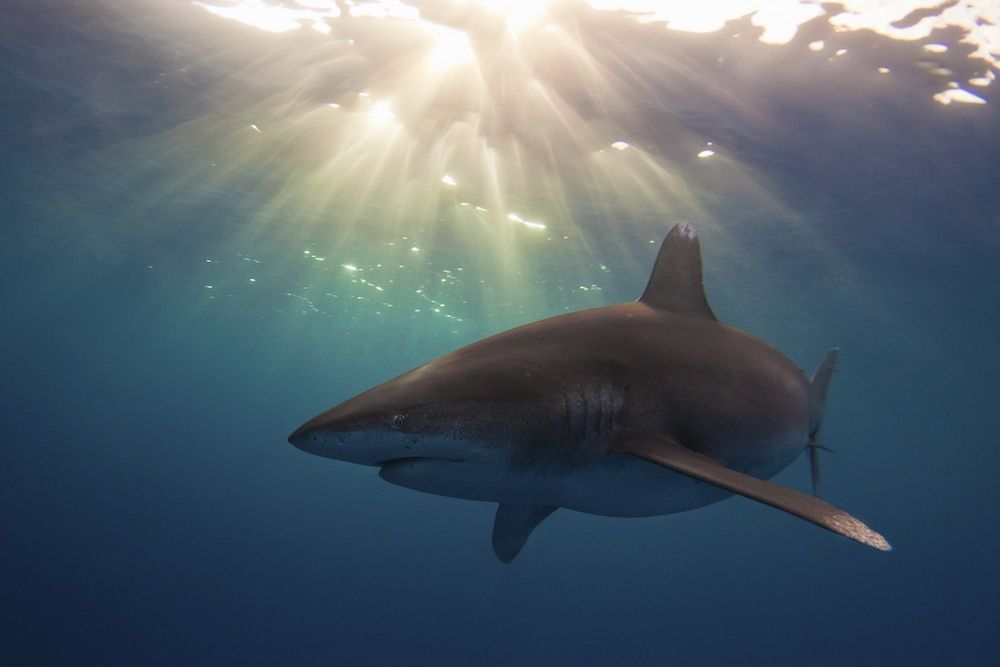Got a Shark Question? Ask an Expert Today!

Do you like sharks but you're too hesitant to approach one? Do you want to know what they eat but don't have any shark stomachs to root around in? Well, this is your chance to get some answers: Two scientists from the National Oceanic and Atmospheric Administration (NOAA) will answer all of your questions about sharks today (Aug. 8) via Twitter.
Starting at 2 p.m. EDT, shark researchers Antonella Preti and Lisa Natanson will be available to answer all of your shark-related queries. Address your shark questions to @NOAAFisheries and include the tag #sharkweekchat. The NOAA chat plays off of the Discovery Channel's annual "Shark Week" event. The kickoff to this year's installment was met with some controversy over a mockumentary about the extinct giant shark, Megalodon, which was presented as if the ancient beast still swam the seas.
Preti studies what sharks eat and has dissected more than 2,000 swordfish and shark stomachs, including 200 from shortfin mako sharks, according to a statement from NOAA. This messy work allows her to study the feeding ecology of shortfin mako, blue and thresher sharks (which can feed by slashing and stunning prey with their tail, cracking it like a whip). Natanson has tagged more than 10,000 sharks with locators that help scientists follow their movements, and studies the life history of the animals, with a focus on age, growth and reproduction. [8 Weird Facts About Sharks]

Preti recently analyzed the guts of a shortfin mako and will share the results of her dissection —including what the 1,323-lb. (600 kilograms), 12-foot-long (3.7 meters) giant ate for its last meal — during the chat.
Sharks are vital to ocean ecosystems, where they keep populations of midlevel predators in check; when they disappear, negative changes can ripple through the food web and even affect the presence of marine plants, studies have shown. But as many as 100 million sharks are killed each year for their meat and their fins, which are made into shark-fin soup. This dish is considered a delicacy and is prized in China, despite evidence that it can contain high levels of toxins like mercury.
Email Douglas Main or follow him on Twitter or Google+. Follow us @livescience, Facebook or Google+. Article originally on LiveScience.com.
Sign up for the Live Science daily newsletter now
Get the world’s most fascinating discoveries delivered straight to your inbox.












